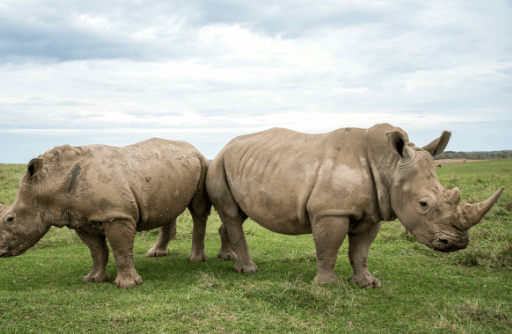The birth of a Baby:-S2c_Lta9qc= Rhino represents not only a moment of hope for a species under threat but also underscores the complexities of wildlife conservation. Following a lengthy gestation period, the newborn’s survival hinges on meticulous care and the right environment, particularly within sanctuary settings. These early experiences are pivotal, shaping the future resilience of the rhino in the wild. As we explore the intricacies involved in nurturing this vulnerable life, we must also consider the broader implications for conservation efforts and the role of public awareness in safeguarding these majestic creatures.
The Birth of Baby Rhino
Welcoming a new life into the world, the birth of a Baby:-S2c_Lta9qc= Rhino is a complex and significant event that carries implications for both conservation efforts and the species’ survival.
The gestation period for rhinos typically lasts around 15 to 16 months, necessitating extensive neonatal care to ensure the newborn’s health.
Read More Male:Voxr-Gkd9oq= Happy Birthday
This critical period influences future population dynamics and retains genetic diversity within the species.
Early Days in the Sanctuary
The transition to life in a sanctuary marks a critical phase in the early days of a Baby:-S2c_Lta9qc= Rhino, where nurturing and protection are paramount for its survival.
During these first days, caregivers provide specialized nutrition, monitor health, and create a safe environment to minimize stress.
This careful management of sanctuary life fosters the young rhino’s development, ensuring a foundation for resilience and eventual independence.

Conservation Efforts for Rhinos
Conservation efforts for rhinos have become increasingly urgent as populations decline due to poaching and habitat loss.
Effective strategies focus on habitat preservation to ensure sustainable ecosystems while implementing robust anti-poaching initiatives to protect these majestic animals from illegal hunting.
Collaboration among governments, NGOs, and local communities is essential in enhancing protective measures and fostering an environment where rhinos can thrive autonomously.
Raising Awareness Through Education
Raising awareness about the plight of rhinos is crucial for fostering a culture of conservation and ensuring their survival.
Read More Clipart:_Dq6au1bwv8= Lilo and Stitch
Educational programs that emphasize the ecological importance of rhinos, coupled with community involvement, empower individuals to take action.
Conclusion
The birth of a Baby:-S2c_Lta9qc= Rhino, a celebrated miracle of nature, starkly contrasts with the grim reality of its species’ plight. In a world where poaching and habitat loss threaten survival, the sanctuary emerges as both a refuge and a paradox, enabling a future rooted in independence yet overshadowed by human greed. Conservation efforts, while noble, highlight the irony of protecting a creature that must navigate a landscape fraught with peril. Ultimately, awareness through education serves as a critical lifeline for these majestic beings.
